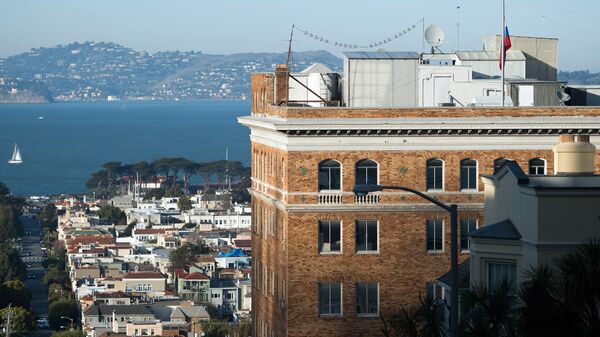"Yes," Tillerson said when asked about the offer, according to the transcript of the testimony published on Thursday. "These were properties that they were the property of the Russian Federation Government. They were not properties they were leasing. They would be returned with conditions."
Tillerson added that they came to a point that "under the right agreement from the Russians we could return I think one of the properties, I don't know if it was one or two."
"We put those conditions forward to them and my recollection is they didn't like the conditions and said, well, you can't do that to us, that violates, blah, blah, blah," Tillerson said in the testimony.
Tillerson noted that the conditions included a restriction of how the Russians could access the properties, as well as when they could access them, and how they could move their people about.
"But in any event, there were restrictions that the Russians felt were unacceptable. And at that point, the return kind of stopped, the discussion about it stopped because they weren't happy with where it was going," he added.
Also, when asked whether the process of returning the diplomatic facilities died due to the fact that the conditions were unacceptable for the Russian side, Tillerson said, "That's my recollection."
A row between the United States and Russia over diplomatic property erupted in December 2016, when outgoing US President Barack Obama closed Russian diplomatic compounds in New York and Maryland and expelled 35 Russian diplomats.
In 2017, the new administration under President Donald Trump shut down the Russian Consulate General in San Francisco, and trade missions in New York City and Washington in response to Moscow's decision to reduce the number of US diplomatic staff in Russia.
In March, the United States closed the Russian Consulate in Seattle over allegations of Moscow's involvement in the poisoning of former Russian double agent Sergei Skripal in the United Kingdom, though the Kremlin firmly denied any involvement. Officials from the US Department of State entered the official residence of the former Russian consul after breaking all the locks.
Moscow has said that the actions of the United States constituted a violation of international law, including the Vienna Convention on Diplomatic and Consular Relations.


